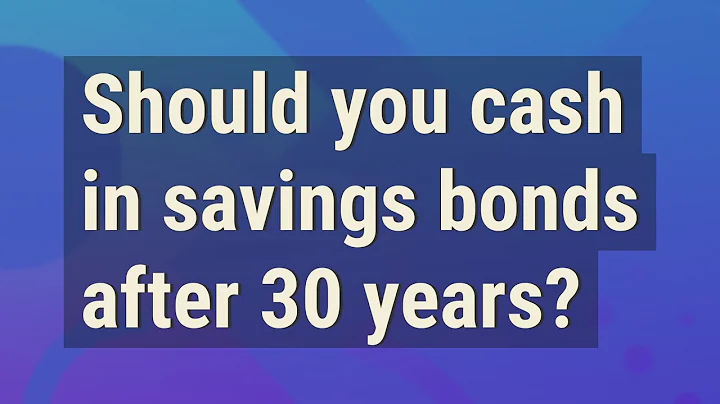Is there a penalty for not cashing in matured EE savings bonds?
There is no penalty if you simply hold onto the bond after five years. There is value in holding onto most bonds. The longer they mature, the more interest bonds earn.
With a Series EE bond, you wait to get all the money until you cash in the bond. Electronic EE bonds: We pay automatically when the bond matures (if you haven't cashed it before then). Paper EE bonds: You must submit the paper bond to cash it.
When savings bonds reach final maturity, and cease earning interest, the Bureau does not notify the bondholder. For those fully matured bonds remaining unredeemed, there is no active program by the Bureau to locate the bondholders and pay them the proceeds to which they are entitled.
Financial institutions now have the option to not cash savings bonds for both non-customers or new customers.
When those bonds mature and stop earning interest, it is time to redeem them. Redeeming bonds is easy - just take them to a local bank or send them to the Bureau of the Fiscal Service. Directions are available on our web site at TreasuryDirect.gov.
Use the Education Exclusion
You can skip paying taxes on interest earned with Series EE and Series I savings bonds if you're using the money to pay for qualified higher education costs. That includes expenses you pay for yourself, your spouse or a qualified dependent.
EE bonds earn interest until the first of these events: You cash in the bond or it reaches 30 years old. Therefore, many of these bonds have stopped earning interest. If you moved your EE bond into a TreasuryDirect account, we pay you for the bond as soon as it reaches 30 years and stops earning interest.
All Series EE bonds reach final maturity 30 years from issue. Series EE savings bonds purchased from May 1995 through April 1997 increase in value every six months. The interest rate is compounded semiannually.
If you've got a savings bond sitting around, should you cash it in? If the bond has reached its full maturity, there's no reason not to — you'll stop earning any interest on a U.S. savings bond after 30 years. If the bond isn't mature yet, the answer depends on your financial situation.
Series EE and I bonds mature 30 years from their issue date.
Can you hold bonds past maturity?
You can hold your bond once it reaches maturity, but you won't earn any additional interest. On one hand, you can't spend a savings bond without redeeming it, so the value of your bonds would be considered "safe" from that standpoint.
Most savings bonds stop earning interest (or reach maturity) between 20 to 30 years. It's possible to redeem a savings bond as soon as one year after it's purchased, but it's usually wise to wait at least five years so you don't lose the last three months of interest when you cash it in.

EE bonds earn interest until the first of these events: You cash in the bond or it reaches 30 years old. Therefore, many of these bonds have stopped earning interest. If you moved your EE bond into a TreasuryDirect account, we pay you for the bond as soon as it reaches 30 years and stops earning interest.
Now, new Series EE bonds will increase in value every month. The announced interest rate is compounded semiannually. Bonds cashed before 5 years are subject to a 3-month interest penalty. For example, if you cash a bond after 18 months you will get 15 monthsworth of interest.
All Series EE Bonds reach final maturity 30 years from issue.
If you've got a savings bond sitting around, should you cash it in? If the bond has reached its full maturity, there's no reason not to — you'll stop earning any interest on a U.S. savings bond after 30 years. If the bond isn't mature yet, the answer depends on your financial situation.